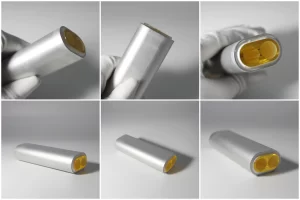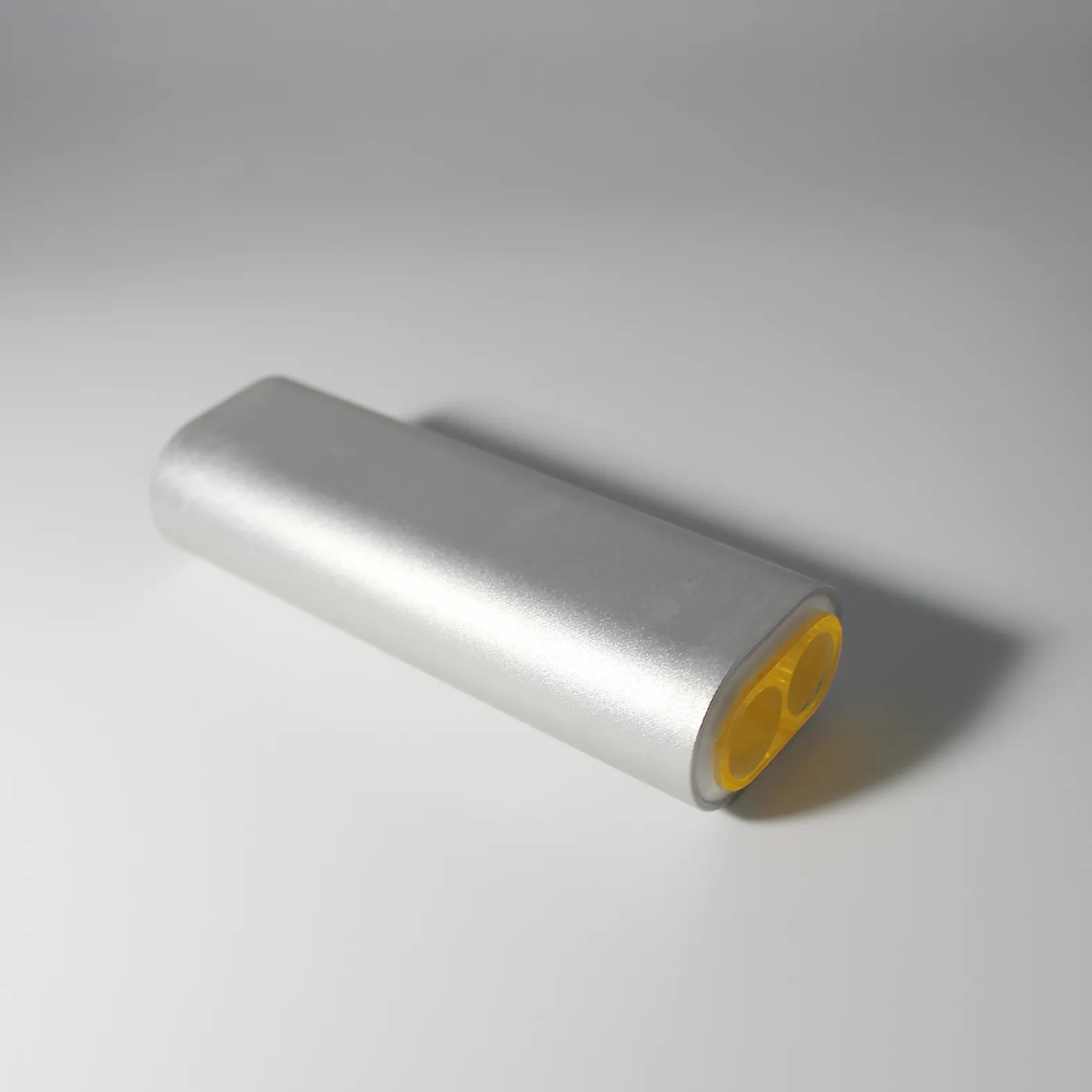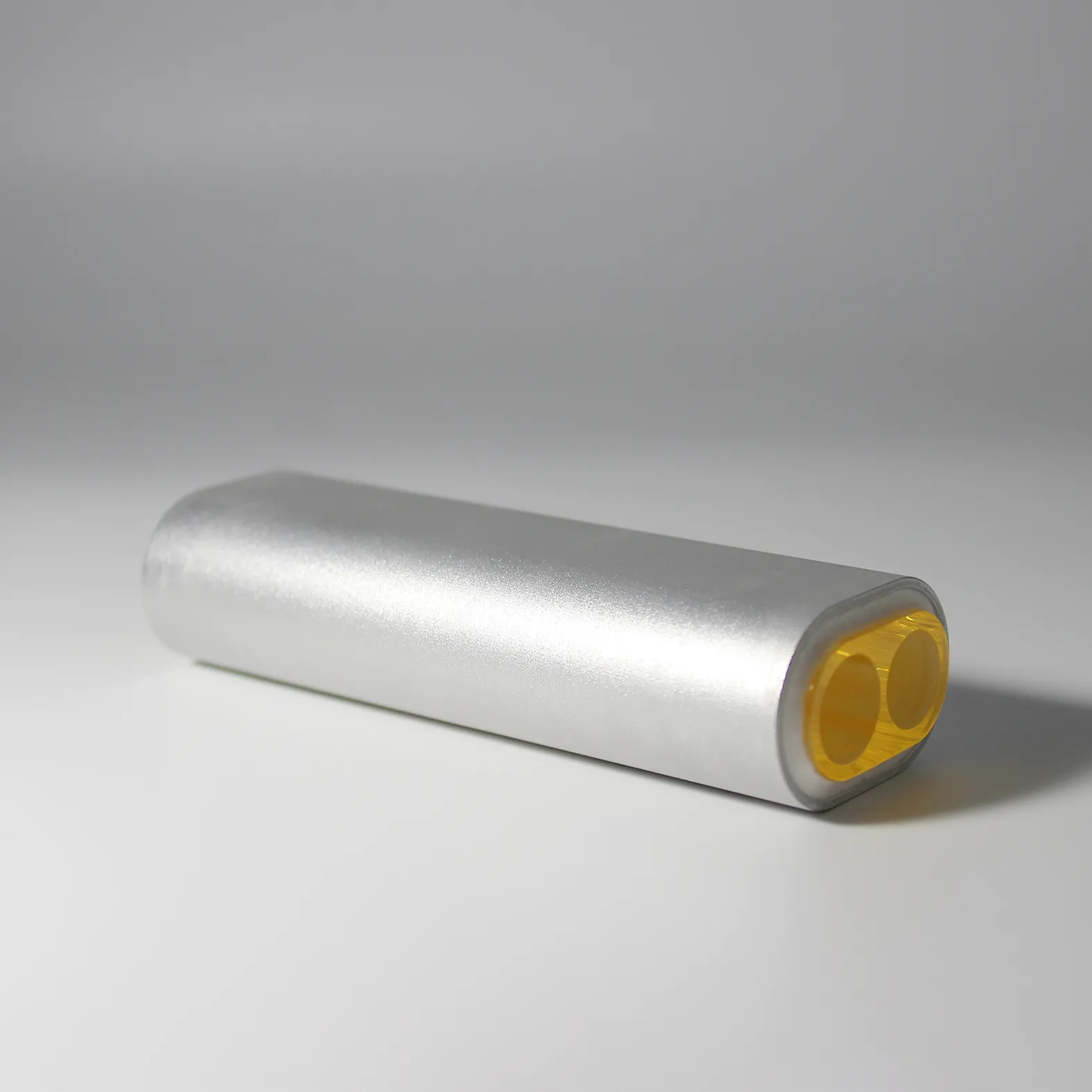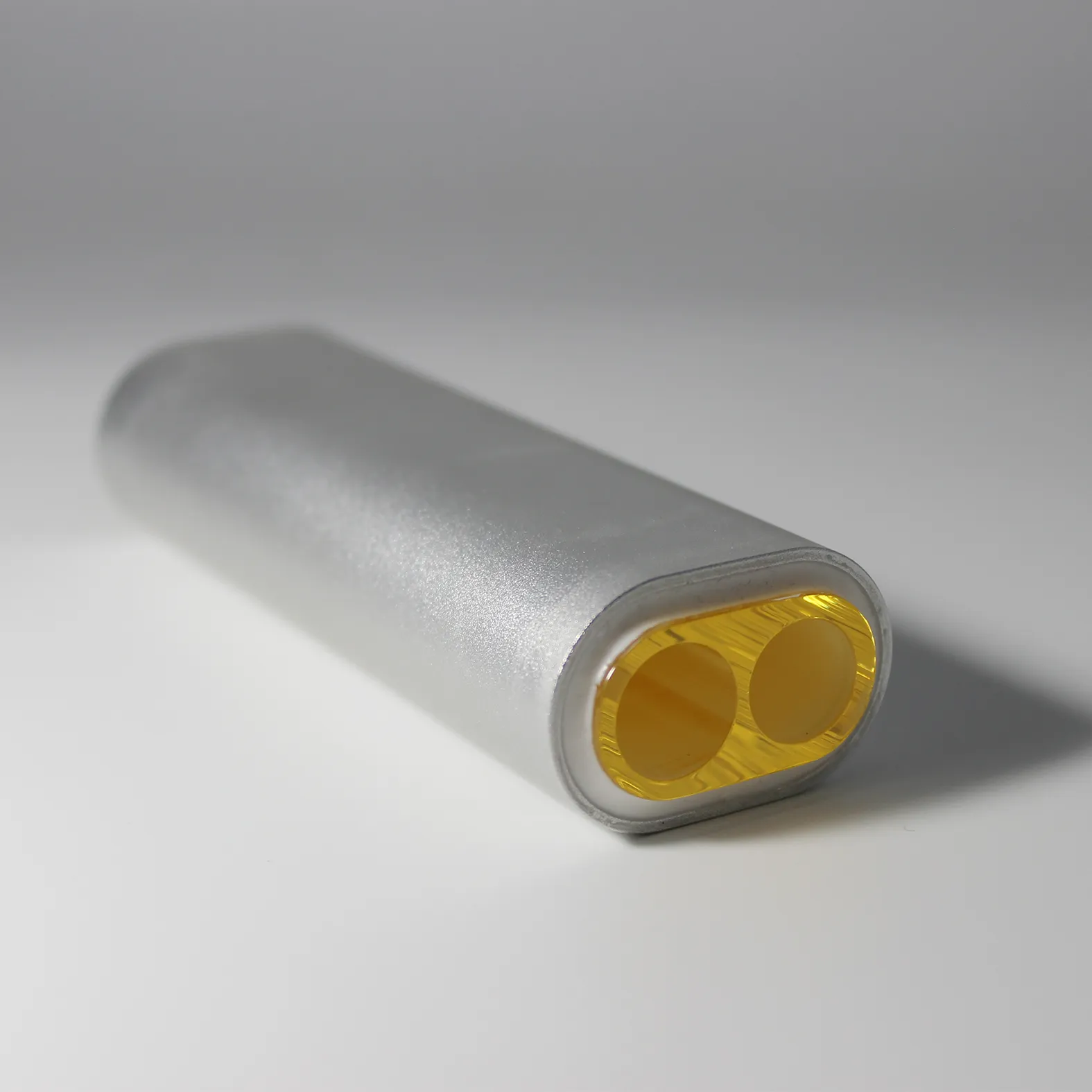VY Optics High Precision Two Bores Cavit Laser Tubes
Dimension: 3.00mm-380.00mmm
Tolerance: +/-0.1mm
Surface Accuracy: As requested
Surface Quality: 60/40
Clear Aperature: 95%
Coating: Optional
Flow Tubes are used as filter media in the laser cavity of flash lamp pumped solid-state laser systems. Flow Tubes transmit the ideal pumping bands while filtering undesired UV radiation
and parasitic lasing.
Types of Glass Laser Flow Tubes
VY Optoelectronics Co.,Ltd. produce laser cavity filters according to the customer’s specifications, with single hole, double and triple holes based on the different applications or properties.
Material of Laser Cavity Filters
The material chosen for the laser flow tube will depend on your application. According to different application and performance requirements, the available materials are as follows:
- Synthetic Quartz
- Fused Silica
- Cerium Doped Quartz
- Europium Doped Quartz
- Titanium Doped Quartz
- Samarium Doped Quartz Glass
The laser cavity (condensing cavity) is mainly used for lasers, with the wide application of laser technology, the cavity style has also undergone various changes.
Compared with ceramic concentrating cavity and resin concentrating cavity, quartz material is corrosion-resistant, not easy to be damaged, easy to clean, and has a long working life. The laser cavity made of quartz glass as raw material, which enables the laser to run stably and reliably for a long time.
Picture of Two Holes Laser Flow Tube Cavity

People Also ask
- What is laser cavity mode?
Laser mode means the possible standing waves in laser cavity. We see that stimulated lights are transmitted back and forth between the mirrors and interfere with each other, as a result
only light whose round trip distance is integer multiples of the wavelength l can become a standing wave.
- What is the difference between cavity filter and bandpass filter?
Band Pass Filter (BPF) and Cavity Diplexer have one thing in common that they both have to deal with frequency filtering. BPF lets only the frequency of a particular range to pass while
Cavity Diplexer keeps frequencies separated that are received and transmitted.
- What are the advantages of cavity filter?
Cavity filters offer the user very low insertion loss, steep skirt selectivity, and narrower bandwidths than discrete component filters. Smiths Interconnect’s waveguide filters provide
low-loss solutions for high power applications.
Our Ordering Process
Send us your request with detailed specifications
Receive a commercial offer with terms and costs
After your approval, we handle manufacturing, quality control, and shipping
📦 Shipping
3-5 days in EU, from 10 days to USA
💳 Payment methods
Cash, Bank Transfer, Cards (Visa, Mastercard, Amex, Discover) and PayPal
💬 Questions?
Contact us via WhatsApp, phone, live chat or email



